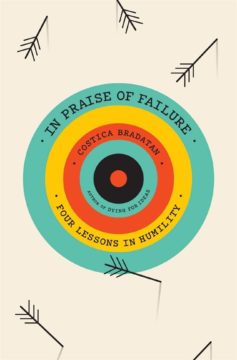Julien Crockett in the Los Angeles Review of Books:
 JULIEN CROCKETT: I want to start with a quote from the end of your book where you discuss the final stage of life—death—and what happens with the failures we accumulate along the way:
JULIEN CROCKETT: I want to start with a quote from the end of your book where you discuss the final stage of life—death—and what happens with the failures we accumulate along the way:
An odd party indeed, but when you think about it, a better arrangement is hard to imagine. For when we finally make it to the door, we know exactly what we leave behind—what we have been. We exit clean and unattached to anything, scar-covered and worn out, yet whole. With some luck, even cured.
“Cured” is an interesting word choice, implying that we are sick. What do you mean by “cured”?
COSTICA BRADATAN: Of course we are sick. For what is life, after all, if not a genetically transmitted disease? This is an old, indeed timeless, insight. When Socrates was about to die, he asked one of his disciples, Crito, to perform a sacrifice, on his behalf, to Asklepios, the god of healing. In ancient Greece, you did that whenever you recovered from an illness. As Socrates was about to be cured of the sickness that had been his life, he felt grateful and wanted to thank the god of healing. A bit earlier, and in another part of the world, the Buddha had suggested something similar when he said that “to live is to suffer.” Indeed, life is no ordinary sickness, but a highly addictive one: the more of it we have, the more we want, and the more entangled in it we become.
More here.
